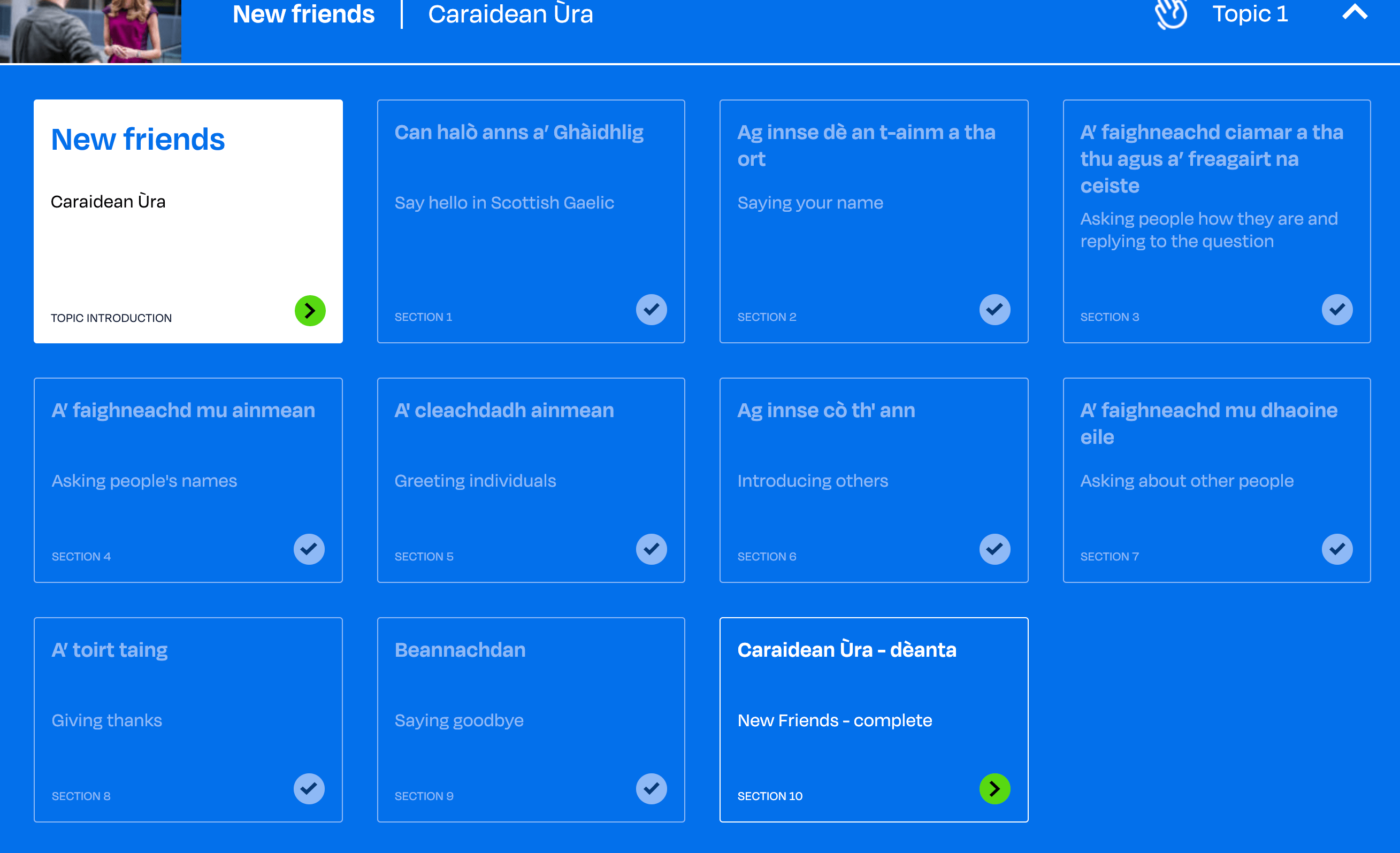Chaidh na daoine a chur a-null 2
The people were sent over 2
We have seen the rules for possessive pronouns many times before, but here they are again.
The beginning of the verb changes according to these rules:
| mo | my | |
| do | your (singular) | |
| a/a h- | her | h-vowel |
| a | his | |
| ar/ar n- | our | n-vowel |
| ur/ur n- | your (polite/plural) | n-vowel |
| an/am | their | am for bfmp |
| Chaidh | mo | thoirt dhachaigh. |
| Went | my | taking homewards. |
| I got | taken | home. |
| An deach | ur n- | aithneachadh? |
| Did go | Your | recognising? |
| Did you | get | recognised? |
| Chaidh | ar n- | aithneachadh. |
| Went | Our | recognising. |
| We | got | recognised. |
Chaidh na litrichean a chur don phost.
The letters were sent in the post.
Càit an deach an cur don phost?
Where were they put in the post?
Chaidh iad an cur don phost aig oifig a’ phuist.
They were put in the post at the post office.
Chaidh ceòl a chluiche.
Music was played.
Càit an deach a chluiche?
Where was it played?
Chaidh a chluiche san taigh-òsta.
It was played in the hotel.
Chaidh an nighean a chur dhachaigh.
The girl was sent home.
Carson a chaidh i a cur dhachaigh?
Why was she sent home?
Chaidh i a’ cur dhachaigh leis nach robh i gu math.
She was sent home because she wasn’t well.
DÈ DO BHEACHD? | WHAT DO YOU THINK?
An deach do thogail ann an Alba?
Càit an deach do thogail?
An deach do chur a-null thairis led obair a-riamh?
Ma chaidh, càit an deach do chur?




